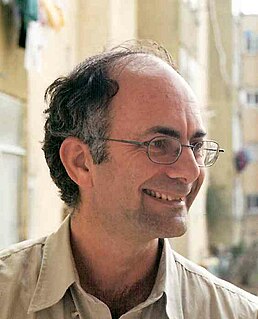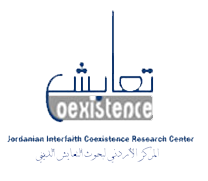Related Research Articles

Interfaith dialogue refers to cooperative, constructive, and positive interaction between people of different religious traditions and/or spiritual or humanistic beliefs, at both the individual and institutional levels. It is distinct from syncretism or alternative religion, in that dialogue often involves promoting understanding between different religions or beliefs to increase acceptance of others, rather than to synthesize new beliefs.
Abdul Aziz Said was Professor Emeritus of International Relations in the School of International Service at American University, Washington, D.C., and founding Director of the university's International Peace and Conflict Resolution Division. Said was well known for helping shift the focus of International Relations theory from real politic-based on the concept that the law of power governs states, to new world order-based on cooperation and common security. Starting in the 1990s Said focused his work on peace and conflict resolution and later explored the relationship between spirituality and religion in international politics.
Track II diplomacy or "backchannel diplomacy" is the practice of "non-governmental, informal and unofficial contacts and activities between private citizens or groups of individuals, sometimes called 'non-state actors'". It contrasts with track I diplomacy, which is official, governmental diplomacy that occur inside official government channels. However, track two diplomacy is not a substitute replacement for track one diplomacy. Rather, it is there to assist official actors to manage and resolve conflicts by exploring possible solutions derived from the public view and without the requirements of formal negotiation or bargaining for advantage. In addition, the term track 1.5 diplomacy is used by some analysts to define a situation where official and non-official actors cooperate in conflict resolution.

Sunni Islam is the dominant religion in Jordan. Muslims make up about 97% of the country's population and some Shiites. Many Shia in Jordan are refugees from Syria, Lebanon, and Iraq.
Qamar-ul Huda is an American religious scholar.
Marc Gopin, scholar and practitioner, is the director of the Center for World Religions, Diplomacy and Conflict Resolution (CRDC), and James H. Laue Professor at the School of Conflict Analysis and Resolution at George Mason University Arlington, Virginia, USA. The Association of Conflict Resolution recently awarded Gopin The Peacemaker Award for his contribution to the Conflict Resolution Field. Note that, in 2008 he also received the Andrew Thomas Peacebuilder Award from the New York State Dispute Resolution Association (NYSDRA). Gopin has pioneered peacebuilding projects at CRDC and trained thousands of peacebuilders in Afghanistan, Iran, Syria, Palestine and Israel on strategies to address complex conflicts. He studies dilemmas of values in global conflicts and diverse contexts where religion and culture play a crucial role in conflicts and conflict resolution.

Yehuda Stolov, an Israeli, is a founder and the executive director of the Interfaith Encounter Association (IEA). He currently resides in Jerusalem with his wife, Lia and his three kids.
Mohammed Abu-Nimer is an American expert on conflict resolution and dialogue for peace. He is a full professor at the American University School of International Service in International Peace and Conflict Resolution in Washington, DC, the largest school of international relations in the United States.

The MIT Center for International Studies (CIS) is an academic research center at the Massachusetts Institute of Technology. It sponsors work focusing on international relations, security studies, international migration, human rights and justice, political economy and technology policy. The center was founded in 1951.
World Interfaith Harmony Week is a UN resolution for a worldwide week of interfaith harmony proposed in 2010 by King Abdullah II and Prince Ghazi bin Muhammad of Jordan. The World Interfaith Harmony Week falls in the first week of February of every year and aims to promote harmony between all people regardless of their faith.

The Jordanian Interfaith Coexistence Research Center is a non-governmental organization for promoting peaceful religious coexistence based out of Amman, Jordan. It focuses on fostering interfaith dialogue on a grassroots level and creating interreligious harmony. The JICRC is currently run by its founder and director, Father Nabil Haddad.
Center for Justice and Peacebuilding (CJP) is an accredited graduate-level program founded in 1994. It also offers non-credit training. The program specializes in conflict transformation, restorative justice, trauma healing, equitable development, and addressing organizational conflict. CJP is housed at Eastern Mennonite University (EMU) in Harrisonburg, Virginia, which describes itself as "a leader among faith-based universities" in emphasizing "peacebuilding, creation care, experiential learning, and cross-cultural engagement." One of the three 2011 Nobel Peace Laureates, Leymah Gbowee of Liberia, earned a master's degree in conflict transformation from CJP in 2007.
Ephraim Isaac is an Ethiopian scholar of ancient Ethiopian Semitic languages and of African and Ethiopian civilizations. He is the director of the Institute of Semitic Studies at Princeton University and the chair of the board of the Ethiopian Peace and Development Center.
Landrum Rymer Bolling was an American journalist and diplomat and a noted pacifist who was a leading expert and activist for peaceful resolution of the Israel-Palestine conflict. He first worked as a war correspondent during and after World War II. He taught at Beloit College and Brown University before serving as president of Earlham College from 1958 to 1973. He was actively involved in the foreign policies of several presidential administrations, serving as an unofficial communication channel between the U.S. and the Palestinian Liberation Organization in Jimmy Carter's administration. He was honored with many awards for his work to promote peace, and in the fall of 2002, Earlham College named its new social sciences building after him.

Hizkias Assefa (1948) is a conflict mediator known widely in Africa for his non-aligned work as a consultant who has mediated in most major conflict situations in sub-Saharan Africa in the past 20 years, as well as in a dozen countries elsewhere. He is also a professor of conflict studies. Of Ethiopian origin, he is based in Nairobi, Kenya. He was one of the founding faculty members in 1994 of the Conflict Transformation Program at Eastern Mennonite University.

The Jimmy and Rosalynn Carter School for Peace and Conflict Resolution is a constituent college of George Mason University based near Washington, D.C., United States, with locations in Arlington, Fairfax, and Lorton, Virginia, as well as at the Mason Korea campus in Songdo, South Korea. On July 1, 2020, the School for Conflict Analysis and Resolution was renamed the Jimmy and Rossalyn Carter School for Peace and Conflict Resolution, following an announcement by the university in March 2020.

The Fares Center for Eastern Mediterranean Studies is an interdisciplinary education and research organization founded in 2001, devoted to the regional study of the Eastern Mediterranean within the greater Middle East. The Center is part of The Fletcher School of Law and Diplomacy, at Tufts University. Its aim is the study and understanding the heritage of the Eastern Mediterranean and the challenges it faces in the twenty-first century, being at the crossroads between the academic and policy world.
Nadim N. Rouhana is Professor of International Negotiation and Conflict Studies at The Fletcher School of Law and Diplomacy at Tufts University and the Founder and General Director of Mada al-Carmel, Arab Center for Applied Social Research in Haifa, which undertakes theoretical and applied social research and policy analysis to broaden knowledge and critical thinking about the Palestinians in Israel, equal citizenship, and democracy.
Hind Aboud Kabawat is a Syrian-Canadian international counsel, Director of Interfaith Peacebuilding at George Mason University's Center for World Religions, Diplomacy, and Conflict Resolution and deputy head of the Syrian Negotiation Commission's Geneva Office.

The Liechtenstein Institute on Self-Determination (LISD) is a research institute on self-determination, self-governance, and diplomacy. LISD is affiliated with the Princeton School of Public and International Affairs at Princeton University. Founded in 2000 by the Prince Hans-Adam II of Liechtenstein, the Institute aims to enhance global peace and stability through its projects, publications, and commentaries.
References
- 1 2 http://www.washingtondiplomat.com/04-12/a1_12_04.html Archived 2011-10-03 at the Wayback Machine .
- ↑ "Overseas Seminars | Center for World Religions, Diplomacy and Conflict Resolution". crdc.gmu.edu. Archived from the original on 2012-09-28.
- ↑ "Conflict Analysis and Resolution". Archived from the original on 2009-08-03. Retrieved 2009-08-12.